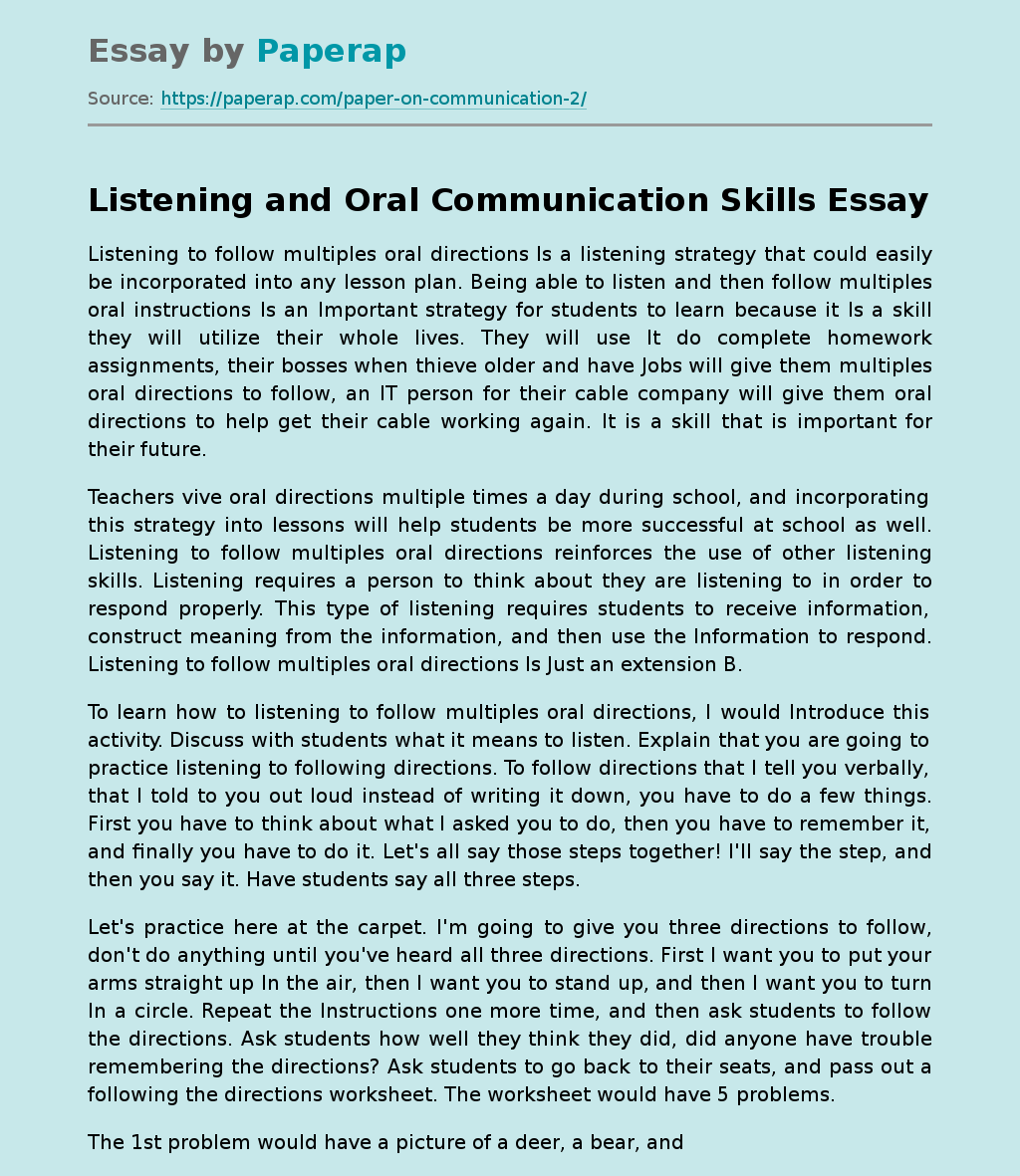Listening and Oral Communication Skills
Children aren’t born with these skills, they are skills that have to be taught and learned. Information, and that they shouldn’t interrupt someone else while they’re talking. They have to be taught how to communicate with adults and classmates. How to speak in complete sentences, how to use the vocabulary they learn in everyday speech, how to ask and answer questions in different types of situations, how to take turns when talking, and how to speak at an appropriate rate.
Students need to be taught these things starting at an early age so that they become experts at listening and oral communications.
Another way to support the development of listening and oral communications skills is to have students practice their strategies and skills with classmates. This gives students a chance to practice both listening and speaking skills. Provide students with opportunities to use their skills in a variety of situations. Have students practice listening for information as well as taking turns talking by having them pair share about what they ate for dinner last night, or what they did over the summer.
Then ask each student to tell the rest of the class their partners’ response.
Having students role play the different strategies they’ve learned to practice them in a controlled situation will also support the development of listening and oral communication skills. D. Listening and oral communication skills are essential to the development of engage because listening and oral communication (speaking) skills are they themselves language skills.
There are four basic language skills and they include: listening, speaking, reading, and writing. (CGI) Listening and speaking skills support reading and writing skills as well as vice versa.
As babies children listen to their parents, which is why adults speaking to babies, toddlers, and children is so important. By listening to parents babies begin to imitate speech by babbling. Eventually by listening to adults and other children speak; toddlers begin to speak as well. Listening leads to the development of oral communication skills. The development of beginning oral communication skills leads to the ability to learn listening skills needed for social and later academic situations. Language continues to develop by speaking to others.
Adults can help the development of speaking skills by modeling them for children. Adults, including parents, relatives, and teachers can demonstrate speaking for children by describing what they are doing (self-talk), describing what the child is doing (parallel talk), and by introducing new words as is appropriate. An adult can also help by restating what child has said in the proper format. (Education. Com) Children use their listening skills to learn from adult speech, and later apply it to their own speech.
The speech skills they learn by listening help develop their overall language skills. Listening and speaking skills lead into learning to read (reading skills), and writing skills. Reading skills are also important to the development of language as reading helps support speaking skills by introducing proper grammar, sentence format, and vocabulary. All of the previously mentioned language skills support the development of writing skills. Writing skills are improved by listening, speaking, and reading skills.
Listening and Oral Communication Skills. (2017, Nov 22). Retrieved from https://paperap.com/paper-on-communication-2/

